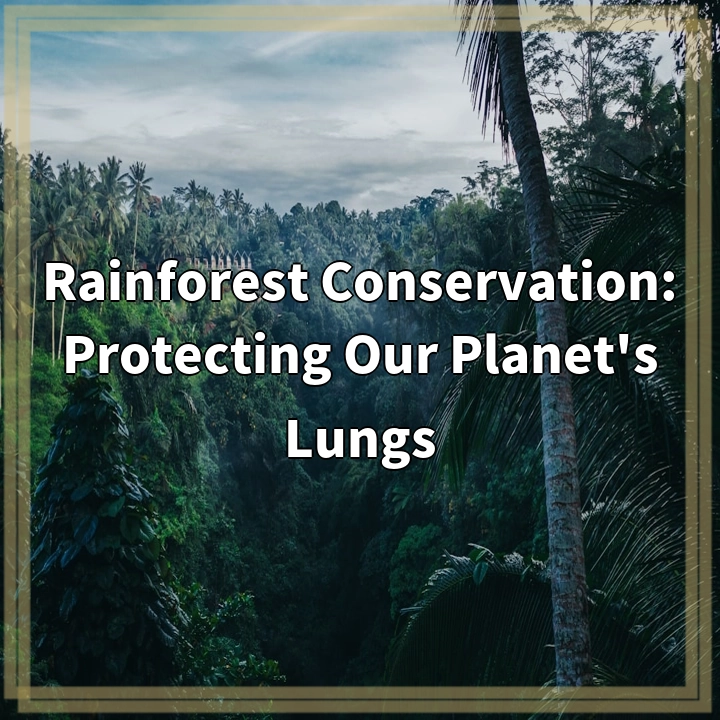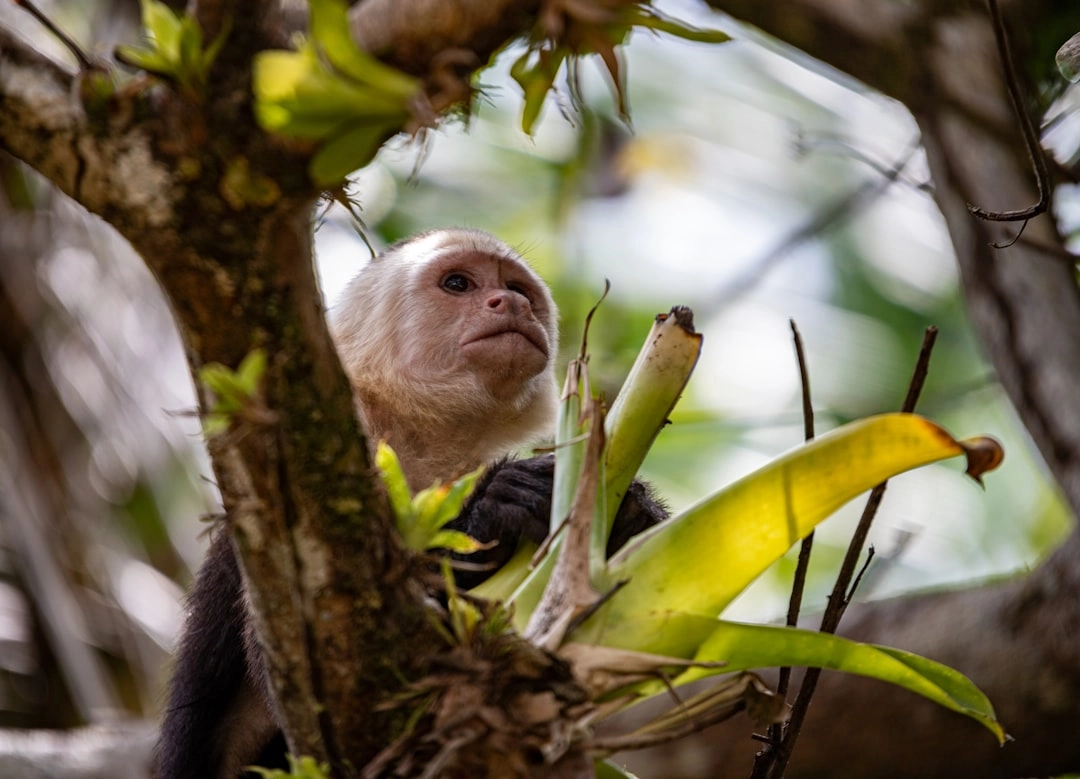
What it is:
Rainforest conservation refers to the various efforts and practices aimed at protecting and sustainably managing rainforest ecosystems. The world’s rainforests, often dubbed “the lungs of the Earth,” play a critical role in regulating climate, maintaining biodiversity, and supporting Indigenous communities. There are several types of rainforests, including tropical and temperate rainforests, each boasting a unique array of flora and fauna.
The Importance of Rainforest Conservation
Rainforests are vital to the health of our planet. They absorb immense amounts of carbon dioxide, helping to mitigate climate change. Additionally, rainforests are home to over 50% of the world’s plant and animal species despite covering only about 6% of the Earth’s land surface. Furthermore, they are crucial for water cycles and serve as a source of invaluable resources, including medicines, timber, and food.
Real-world problems
Despite their significance, rainforests face numerous threats that jeopardize their existence and the ecological balance they maintain. One major issue is deforestation, primarily driven by agricultural expansion, logging, and infrastructure development. This loss not only disrupts habitats but also contributes to climate change, as fewer trees result in more carbon being released into the atmosphere.
Climate Change
Climate change exacerbates the challenges rainforests face. Altered weather patterns can lead to increased frequency and intensity of droughts, floods, and fires. These shifts have detrimental effects on biodiversity, disrupting the delicate balance of rainforest ecosystems and threatening the survival of countless species.
Biodiversity Loss
Rainforest conservation is crucial for protecting biodiversity. Many species found in rainforests are endemic, meaning they exist nowhere else on the planet. Habitat destruction, combined with climate change, poses serious risks, leading to a decline in species populations and potential extinction. The loss of biodiversity can disrupt food webs and ecosystem services upon which both wildlife and humans depend.
Indigenous Rights
Another significant issue is the impact of deforestation and land exploitation on Indigenous communities. Many Indigenous peoples rely on rainforests for their livelihoods, culture, and traditions. Deforestation can marginalize these communities, leading to conflicts over land rights and loss of cultural heritage. Ensuring the protection of rainforests often requires recognizing and respecting the rights of these communities to manage and protect their ancestral lands.
Economic Pressures
Economic pressures drive much of the destruction of rainforests. The demand for palm oil, soy, and timber is often prioritized over sustainable practices. Short-term economic gain frequently overshadows long-term environmental and social consequences, leading to unsustainable exploitation of these vital ecosystems.
Pollution and Invasive Species
Pollution from agricultural and industrial activities further threatens rainforest ecosystems. Chemicals, plastics, and waste materials can contaminate waterways and soil, affecting the health of both wildlife and human populations. Additionally, the introduction of invasive species can disrupt local ecosystems, outcompeting native species and altering habitat conditions.

Solutions to Rainforest Conservation
Addressing the challenges facing rainforests requires a multifaceted approach that combines sustainable practices, policy reform, and community engagement. Effective solutions can help mitigate the threats to these vital ecosystems and promote their conservation for future generations.
Sustainable Land Management
Implementing sustainable land management practices is crucial for balancing the needs of economic development with environmental protection. Agroforestry, sustainable logging, and permaculture are examples of methods that can enhance productivity while preserving rainforest ecosystems. These practices promote biodiversity and reduce the impact on existing forests.
Protected Areas and Conservation Policies
Establishing protected areas is essential for conserving biodiversity and ensuring that vulnerable ecosystems receive legal protection. Governments can create national parks and reserves, enforcing regulations that prevent deforestation and habitat destruction. Strengthening existing conservation policies and introducing new legislation can further support rainforest protection efforts.
Community Involvement and Indigenous Rights
Engaging local communities and recognizing Indigenous land rights are fundamental to successful rainforest conservation. Empowering these communities to manage their resources sustainably can lead to better environmental outcomes. This can be achieved through participatory governance models that respect traditional knowledge and practices while offering economic opportunities through eco-tourism and sustainable enterprise.
Consumer Awareness and Responsible Choices
Educating consumers about the impacts of their purchasing decisions is vital for driving change. Supporting sustainable products, such as certified palm oil and timber, can reduce demand for goods linked to deforestation. Advocacy and awareness campaigns can inform individuals and businesses about the importance of making eco-friendly choices.
Research and Innovation
Investing in research and innovation can uncover new methods for conserving rainforests. Sustainable technologies that minimize environmental impact, such as biodegradable materials and pollution-reduction strategies, can help protect these ecosystems. Continued scientific research is essential for understanding rainforest dynamics and developing effective conservation strategies.
Climate Change Mitigation
Addressing climate change is a critical part of rainforest conservation. Global initiatives aimed at reducing carbon emissions, such as reforestation and afforestation projects, can help restore damaged ecosystems and enhance the carbon-sequestration capacity of rainforests. Collaboration between nations is necessary to tackle this global issue effectively.















